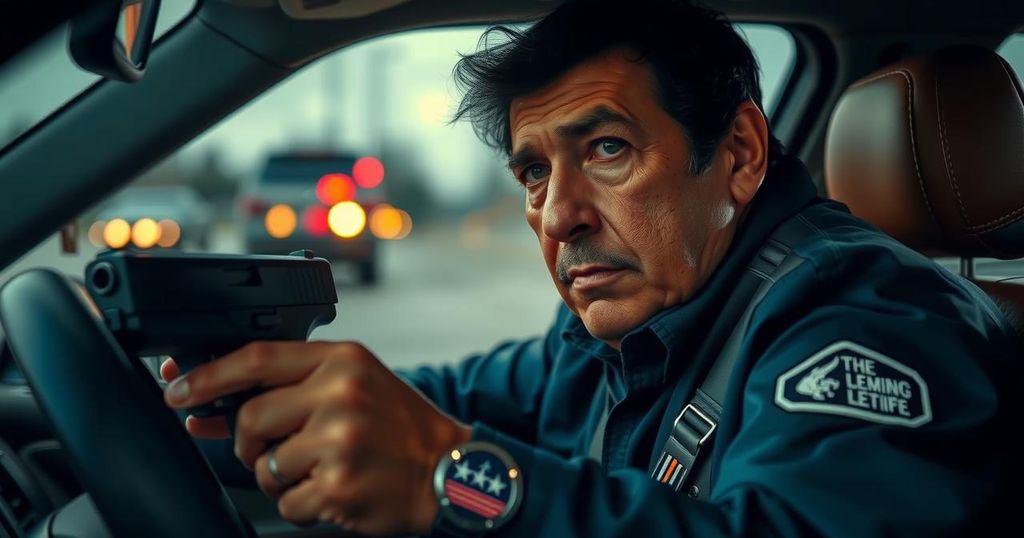Evo Morales claimed that an assassination attempt occurred against him when his vehicle came under gunfire, resulting in bullet holes found in the windscreen. Morales blamed the attack on elements within the Bolivian military and police, calling it a coordinated effort. President Luis Arce has condemned the violence and promised an investigation. Tensions have heightened between Morales and Arce as they prepare for the 2025 presidential elections, amid ongoing legal issues facing Morales and significant protests by his supporters.
Evo Morales, the former president of Bolivia, reported that while in a vehicle over the weekend, an assassination attempt was made on his life, characterized by gunfire directed at his car. In a video shared on social media, he highlighted visible bullet holes in the windscreen of the vehicle. According to a statement from Morales’s political party, the Movement for Socialism (Mas), individuals clad in black opened fire on the car as it passed a military installation. The Mas party holds the government of President Luis Arce accountable for this incident. In response, President Arce condemned the act of violence and committed to a thorough investigation. Despite belonging to the same party, tensions have escalated between Morales and Arce as both have expressed intentions to vie for the presidential candidacy for the 2025 elections. Morales accused the attack of being a coordinated effort involving both military and police forces. He reported that a bullet narrowly missed him and that his driver sustained injuries during the event. This assault took place in proximity to the Ninth Division of the Bolivian Army near Villa Tunari. A faction within the Mas party that supports Morales asserted that the alleged perpetrators had initially sought refuge within the military barracks before being extracted via military helicopter. The faction’s statement described the event as clear evidence of Bolivia being under a fascist regime. While Morales served as president from 2006 until 2019, his tenure concluded amidst allegations of electoral misconduct. He currently faces legal challenges concerning alleged statutory rape and human trafficking, charges he adamantly denies. His supporters have engaged in widespread road blockades and confrontations with law enforcement, maintaining that the charges stem from a vendetta initiated by the interim president following his resignation amidst contentious circumstances in 2019. Both Morales and Arce command substantial factions of loyal supporters, which has led to instances of street violence as they demonstrate their allegiance to their respective leaders.
Evo Morales served as Bolivia’s first indigenous president from 2006 to 2019. His political career has been marred by controversy, particularly after his resignation amid a disputed election, leading to claims of vote tampering and allegations of playing a role in a right-wing coup. The relationship between Morales and his successor, Luis Arce, has soured following their declaration of candidacy for the 2025 elections, marking a significant rift within their political party. Amid growing political unrest, Morales faces significant legal challenges that his supporters believe are politically motivated.
The recent attack on Evo Morales highlights the rising tensions within Bolivian politics, particularly as the political landscape prepares for upcoming elections. With accusations of a coordinated attack involving state forces, the incident illustrates the fractures within the Movement for Socialism party and the broader political environment in Bolivia. Both Morales and Arce must now navigate a complex situation, characterized by escalating violence and division among their supporters.
Original Source: www.bbc.com






